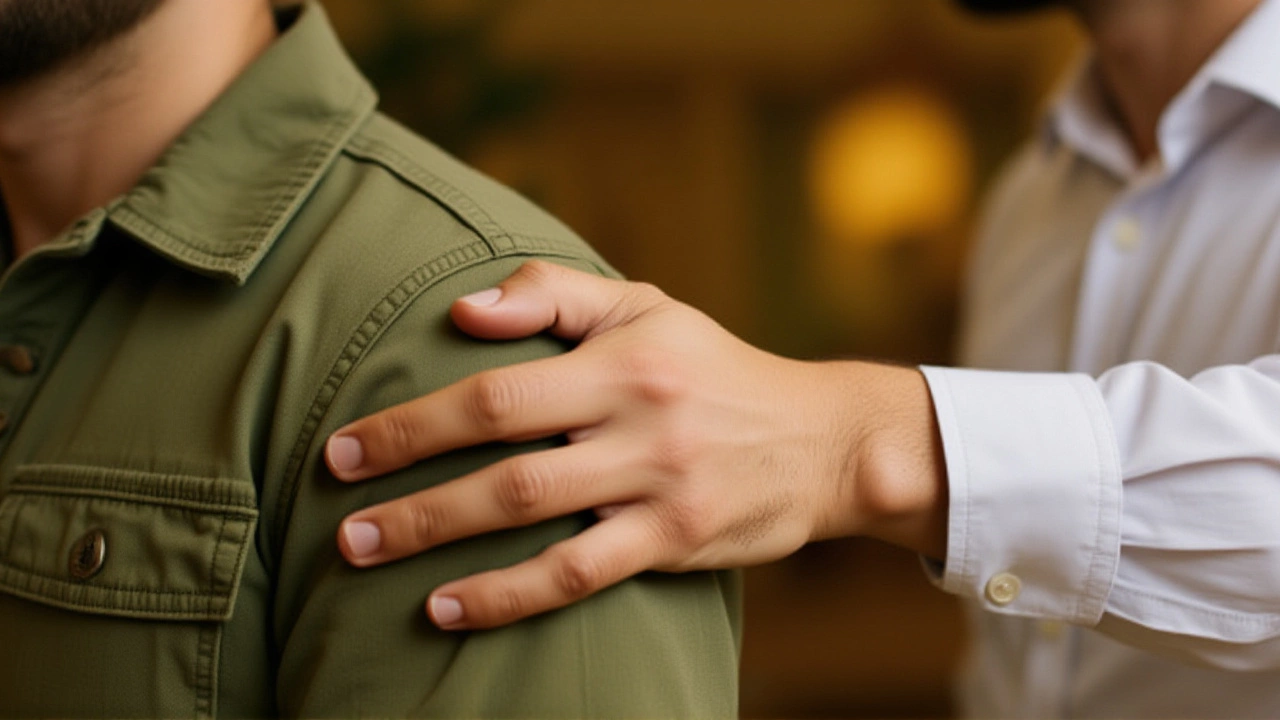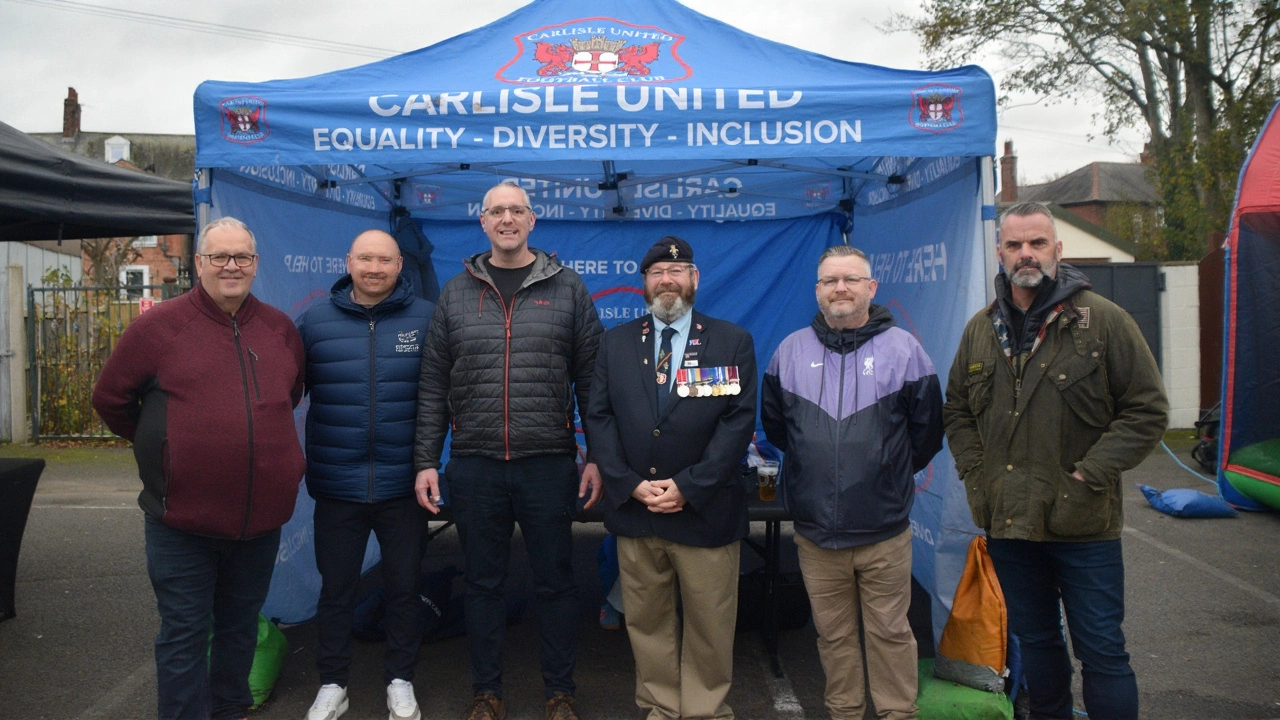Australia's Men's Health Forum Breaks Ties with Dads4Kids Over Ideological Divide on International Men's Day
 Nov, 20 2025
Nov, 20 2025
On Wednesday, November 19, 2025, International Men's Day will be observed across the globe — but in Australia, the day is marked by a quiet but profound rupture. The Australian Men's Health Forum, the federal government’s official peak body for men’s health, has publicly severed ties with Dads4Kids, a conservative Christian group that uses the same date and similar branding to push a very different message. Both organizations claim to champion men and boys. But beneath the surface, they’re fighting over what that even means.
Two Campaigns, One Day, Opposite Worlds
The Australian Men's Health Forum is running its 2025 campaign under the theme “Supporting Men and Boys.” Its message is simple, inclusive, and grounded in public health: check in on a mate. Offer resources. Fund mental health programs. Encourage boys to talk. It’s not about fixing men — it’s about lifting them up, no matter their background, sexuality, or family structure.
Meanwhile, Dads4Kids — officially the Fatherhood Foundation — is pushing “Celebrating Men and Boys.” But their celebration comes with strings attached. Their website claims feminism is a campaign to “vilify men and fathers.” They argue that efforts to address “toxic masculinity” are an attempt to “feminise” men. They’ve publicly opposed marriage equality, saying it “attacks children’s rights to a mother and father.”
It’s not just rhetoric. Their materials often depict men as providers and protectors — the only legitimate role models. Women, in their view, are secondary. LGBTQI+ identities? Not part of the celebration. This isn’t just a difference in tone. It’s a clash of worldviews.
Why the Split Matters
The Australian Men's Health Forum doesn’t just avoid Dads4Kids — it actively warns community groups and MPs not to partner with them. In a statement released last week, AMHF CEO Dr. Alan Nguyen said: “We cannot allow ideology to hijack health. Men’s mental health is already in crisis. Suicide rates among men under 45 are three times higher than women’s. We don’t have time for dogma.”
That crisis is real. In Australia, men account for nearly 80% of all suicide deaths. In rural areas, access to counselors is a three-hour drive away. Many men still believe asking for help is weakness — a belief Dads4Kids, intentionally or not, reinforces by celebrating stoicism as virtue.
But here’s the twist: Dads4Kids isn’t fringe. They’ve got funding from private religious donors, appear on conservative media, and have been invited to speak at some state-level family services conferences. Their branding — bright colors, photos of dads playing with kids — looks harmless. Too harmless, say critics. “They’re weaponizing fatherhood,” says Dr. Lena Patel, a gender studies researcher at the University of Melbourne. “They’re offering a safe, familiar face to push regressive ideas under the guise of helping men.”

A Global Divide in Men’s Advocacy
This isn’t just an Australian issue. International Men's Day, first held in Trinidad and Tobago in 1999, is now observed in over 80 countries. The official 2025 global theme is “Celebrating Men and Boys.” But Australia and the UK have quietly adapted it to “Supporting Men and Boys” — a deliberate move to distance themselves from traditionalist interpretations.
In Zimbabwe, Minister Olivia Muchena praised men’s contributions to family and community — but also acknowledged the “crisis” of boys dropping out of school and turning to drugs. In India, the All India Men’s Welfare Association demanded a National Commission for Men and gender-neutral laws — not to roll back women’s rights, but to fix systemic gaps in child custody, education, and workplace safety.
Even in Kenya, where unemployment and urban-rural divides cripple mental health access, men’s advocates are pushing for services, not slogans. “We don’t need more speeches about masculinity,” says James Mwangi, a Nairobi-based counselor. “We need more counselors. More outreach vans. More ways for a man to say ‘I’m not okay’ without being laughed at.”
The Cost of Silence
The real danger isn’t Dads4Kids’ views. It’s that their message sounds like the truth to men who feel abandoned. Men who’ve lost jobs. Men whose sons are failing in school. Men who’ve been told their worth is tied to their paycheck, their strength, their silence.
The Australian Men's Health Forum is trying to offer a different path — one that says: You can be strong and ask for help. You can be a father and still cry. You can be gay, transgender, or non-binary, and still be a man worth supporting.
But it’s an uphill battle. While Dads4Kids runs ads on Facebook targeting dads in regional Queensland, the AMHF’s campaign relies on community centers, schools, and word-of-mouth. No celebrity endorsements. No viral TikToks. Just quiet, persistent outreach.

What’s Next?
Next week, the Australian Men's Health Forum will launch a national toolkit for schools and workplaces — free, evidence-based, and inclusive. It includes guides on talking to boys about emotions, recognizing signs of depression in older men, and connecting with culturally diverse communities.
Dads4Kids, meanwhile, plans a “Fathers’ March” in Sydney, with banners reading: “Protect the Family. Protect the Father.”
The two movements will share the same date. But they’ll be in different rooms. And the men who need help? They’ll have to choose which message to believe.
Frequently Asked Questions
Why did the Australian Men's Health Forum cut ties with Dads4Kids if they both support International Men's Day?
Though both organizations observe International Men's Day on November 19, their core philosophies are incompatible. The Australian Men's Health Forum promotes inclusive, evidence-based health initiatives for all men, regardless of gender identity or sexual orientation. Dads4Kids, by contrast, promotes traditional gender roles and has publicly opposed LGBTQI+ rights, calling feminism a campaign to “vilify men.” AMHF explicitly states that partnering with groups that exclude or stigmatize segments of the male population undermines their public health mission.
What’s the difference between “Supporting Men and Boys” and “Celebrating Men and Boys”?
“Supporting” implies active intervention — mental health services, economic aid, education access, and emotional safety nets. “Celebrating,” as used by Dads4Kids, often means honoring traditional male roles — provider, protector, stoic — without addressing the systemic pressures that lead to isolation, suicide, or violence. One seeks to heal; the other seeks to reinforce norms that may be harming men.
Are other countries facing similar conflicts over International Men's Day?
Yes. In the UK, government agencies have quietly shifted from the global theme to “Supporting Men and Boys” to avoid association with far-right groups. In India, men’s groups demand gender-neutral laws without opposing women’s rights. In Kenya and Zimbabwe, advocates focus on access to mental health care and education — not ideology. The global movement is splitting between public health approaches and cultural traditionalism.
How does this affect LGBTQI+ men in Australia?
LGBTQI+ men face significantly higher rates of depression, substance abuse, and suicide than their heterosexual peers. Dads4Kids’ messaging, which frames non-traditional identities as threats to family and masculinity, contributes to stigma. The Australian Men's Health Forum explicitly includes LGBTQI+ men in its programs, partnering with groups like QLife and ACON to ensure services are accessible and affirming — a critical distinction in a country where one in five gay men has attempted suicide.
What can individuals do to support inclusive men’s health?
Start by checking in — not just on “mates,” but on anyone who seems withdrawn. Share resources from the Australian Men's Health Forum’s free toolkit. Avoid sharing content from groups that blame feminism or LGBTQI+ identities for men’s struggles. Support local mental health services, donate to men’s crisis lines like Lifeline, and encourage boys to express emotion without shame. Small actions, repeated, change culture.
Is there data showing which approach works better for men’s mental health?
Yes. A 2024 study by the University of Sydney tracked 12,000 men in community programs. Those in inclusive, trauma-informed programs saw a 37% drop in suicidal ideation over 12 months. Programs tied to traditional masculinity messaging saw no improvement — and in some cases, increased isolation. The evidence is clear: inclusion saves lives. Ideology doesn’t.